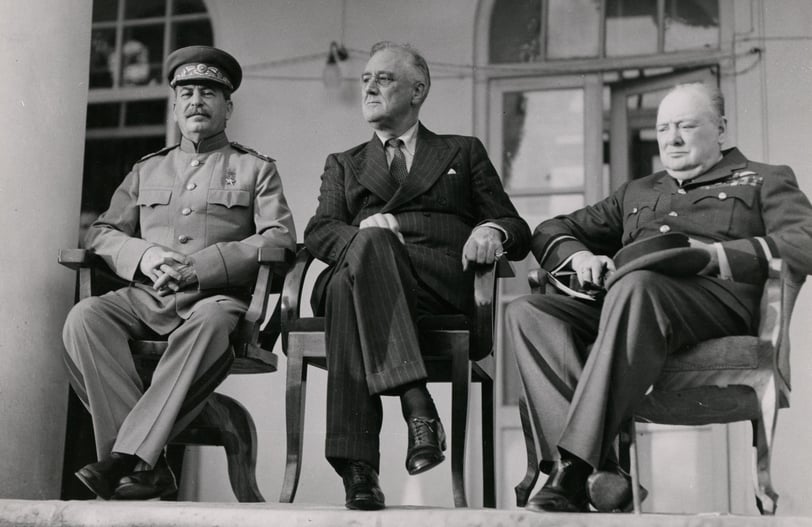

The Tehran Conference: A Pivotal Moment in World War II
The Tehran Conference, held between November 28 and December 1, 1943, was a pivotal moment in the Allied war effort during World War II. It brought together the "Big Three" Allied leaders: U.S. President Franklin D. Roosevelt, British Prime Minister Winston Churchill, and Soviet Premier Joseph Stalin. The conference, held in Tehran, Iran, marked the first time the three leaders met in person.
Key Decisions and Outcomes
The primary objectives of the Tehran Conference were to coordinate military strategy against Germany and Japan, and to discuss the postwar world order. Several critical decisions were made during the meeting:
Second Front in Western Europe: The Allied leaders reaffirmed their commitment to opening a second front in Western Europe to relieve pressure on the Soviet Union, which had been bearing the brunt of the German invasion. This led to the planning and execution of the D-Day landings in Normandy in June 1944.
Soviet Entry into the War Against Japan: Stalin agreed to enter the war against Japan once Germany was defeated. This commitment proved crucial in the final stages of the Pacific War.
Postwar Europe: The leaders discussed the future of Europe after the war, including the division of Germany and Poland. They agreed on the principle of self-determination for the nations of Eastern Europe, although the exact implementation of this principle would later become a source of tension between the Western Allies and the Soviet Union.
The Legacy of Tehran
The Tehran Conference was a significant turning point in World War II. It demonstrated the unity of the Allied leaders and their determination to defeat the Axis powers. The decisions made at Tehran paved the way for the eventual Allied victory. However, the conference also laid the groundwork for the Cold War, as the differing visions of the future of Europe between the Soviet Union and the Western Allies became increasingly apparent.
For further reading:
Office of the Historian, U.S. Department of State: https://history.state.gov/milestones/1937-1945/tehran-conf
History.com: https://en.wikipedia.org/wiki/Tehran_Conference
Britannica: https://en.wikipedia.org/wiki/Tehran_Conference
By understanding the Tehran Conference, we can gain valuable insights into the complex dynamics of World War II and its lasting impact on the global political landscape.
